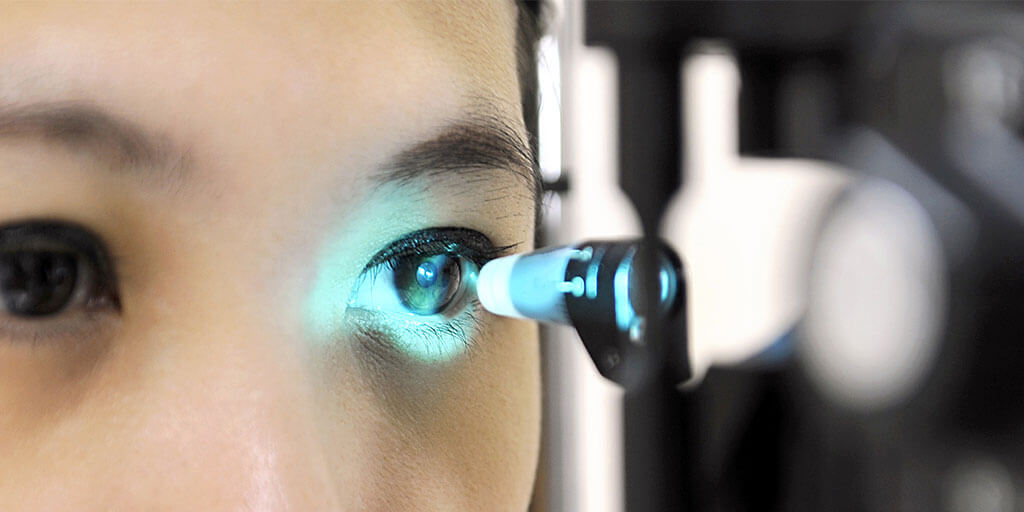Why Is Eye Pressure Testing Important?

When you schedule an eye exam, your eye doctor will perform a variety of tests to assess your vision and identify any issues. One of the tests they perform is an eye pressure test. In the medical field, this procedure is known as tonometry. The doctor uses a device that measures your eye pressure on contact. Eye pressure testing is an essential part of your eye exam. Fortunately, it's painless and only takes a few minutes.
If it has been a while since your last eye exam, you may want to speak with your eye doctor about the purpose and benefits of eye pressure testing. One of the reasons for this is that your eyes are unique. As such, your eye pressure is also unique. Issues may arise that are specifically related to your eyes. An eye pressure test can help you identify minor issues before they turn into big problems.
What Happens During an Eye Pressure Test?
During a tonometry test, your doctor will test your eye pressure to ensure it is not too high. The procedure typically involves the following steps:
- The doctor puts eye drops in your eyes to numb them.
- The doctor gently touches the front surface of your eye with a device.
- The doctor then applies a small amount of pressure to the eye.
- The doctor measures the pressure inside each eye.
Once the doctor performs the tests, they analyze the results.
Two Methods for Measuring Eye Pressure
Doctors use two main methods for measuring eye pressure.
1. Tonometer
After the doctor puts eye drops in your eye, they gently hold a pencil-shaped tonometer against the outside of your eyeball. The reading tells how well your cornea pushes back against the pressure.
2. Air Pressure
Your doctor may use an instrument that blows a small puff of air at your eye while you look into the light. This method also measures the pressure inside your eyeball. Although most eye doctors use a tonometer, there may be cases in which air pressure is a more appropriate method for testing your eyes.
Both methods are painless and only last a few seconds. If your doctor does the “puff of air” test, you may feel a small amount of pressure against your eye but no pain. Your doctor will share the results immediately after the test.
Eye Pressure Test Results
Since each person's eyes and condition are unique, eye pressure test results will vary. Eye doctors measure eye pressure in millimeters of mercury (mmHg). Normal eye pressure lies somewhere between 12 to 22 mmHg. Anything outside of that range indicates an eye condition. For instance, eye pressure above 22 mmHg may mean that you have glaucoma or hypertension.
If the test shows you have high pressure in your eyes, your doctor may monitor your eyes closely by scheduling regular eye exams. Alternatively, they could decide to lower the pressure by prescribing eye drops that you'll take every day. They'll help protect your optic nerve from future damage and, in the long run, could save your sight.
What Causes High Eye Pressure?
There are two leading causes of high eye pressure: ocular hypertension and glaucoma. There are a number of risk factors for either of these conditions:
- Overproduction of aqueous (clear, watery fluid in the eye)
- Poor aqueous drainage
- Eye trauma or injury
- Certain medications
- Age
- Genetics
There is a correlation between high eye pressure and glaucoma or hypertension. These conditions can trigger high eye pressure. Likewise, high eye pressure can lead to these conditions.
What Are the Symptoms of High Eye Pressure?
Like many eye conditions, the symptoms of high eye pressure build slowly over time, making it difficult to identify in the earliest stages. Some of the most common signs of high eye pressure include
- Severe headache
- Eye pain
- Nausea and vomiting
- Blurred vision
- Halos around lights
- Eye redness
If left untreated, the conditions that lead to elevated eye pressure will eventually cause blindness. Therefore, if you notice one or more symptoms, schedule an eye exam right away. If you have an eye injury, you should make an emergency medical visit to your local eye care clinic.
Schedule an Eye Exam Today
Contact Gulf Coast Vision Center today at one of our Pace, Milton, Crestview or Pensacola locations to schedule a comprehensive eye exam.
